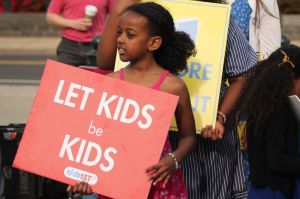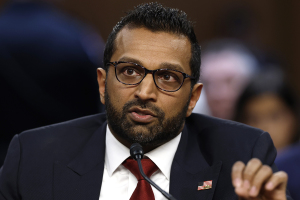USCIRF Hails Senate Resolution on Iraqi Religious Minorities
The U.S. Commission on International Religious Freedom is applauding the U.S. Senate for its adoption of a resolution that focuses on the perilous status of religious minorities in Iraq.
The Senate passed S. Res. 322 on Aug. 5 – about five months after the House passed a companion measure, H. Res. 944, authored by Rep. Gary Peters (D-Mich.).
Among other provisions, the resolutions call on the government of Iraq to direct the Iraqi Ministry of Human Rights to investigate and issue a public report on abuses against and the marginalization of minority communities in Iraq and make recommendations to address such abuses.
They also call on the U.S. government and the United Nations Assistance Mission for Iraq to urge the government of Iraq to implement provisions in the Iraqi Constitution that provide protections for Iraq's religious minorities; and urge the U.S. government to continue to fund a new minorities committee whose membership is selected by Iraq's minority communities.
Both measures reflect many of the recommendations USCIRF has advanced and are timed ahead of the U.S. military withdrawal from Iraq and as Iraq seeks to form a new government.
"USCIRF applauds this resolution for shining a spotlight on the dire issues facing Iraq's smallest religious minorities, issues about which USCIRF for many years has expressed concern," said USCIRF Chair Leonard Leo in a statement Tuesday following the passage of S. Res. 322.
"Their future is far from secure and there is much that needs to be done," he added, referring to religious minorities in Iraq including the Chaldeans, Syriacs, Assyrians, Armenians and other Christians, Sabean Mandaeans, Yazidis, Baha'is, Kaka'is, Jews, and Shi'a Shabak.
For centuries, the religious communities have lived in the region that is now Iraq, but are currently experiencing targeted violence, have no militia or tribal structures to defend themselves, and do not receive adequate official protection.
Many, as a result, have fled to neighboring countries, where they represent a disproportionately high percentage of registered Iraqi refugees, and still fear to return. Those who remain in Iraq are now concentrated in Nineveh governorate, one of the most dangerous areas of in the country, where they are caught in the middle of a struggle for territorial control between the Kurdistan Regional Government and the central Iraqi government and suffer abuses and discrimination as a result.
"The violence, forced displacement, discrimination, marginalization and neglect suffered by members of these groups threaten these ancient communities' very existence in Iraq, and jeopardize Iraq's future as a diverse, pluralistic, and free society," remarked Leo.
That, he added, is why USCIRF has recommended that Iraq be designated a "county of particular concern" under the International Religious Freedom Act for its egregious and ongoing violations of religious freedom.
USCIRF is also urging the U.S. government to make the minorities a high priority in its ongoing relationship with the both the Iraqi government and the Kurdistan Regional Government.
Among other actions, the bipartisan agency said the U.S. government should revive the interagency task force on Iraqi minority issues that previously existed and direct it to consider and recommend policies for the U.S. government to address the needs of Iraq's vulnerable minority communities.
In addition, USCIRF is urging the U.S. government to work with the new Iraqi government, when it is established, to reconstitute its minorities committee so that it not only includes representatives of all of Iraq's minority communities selected by the communities themselves, but also is able to communicate minority concerns to senior Iraqi government officials and the international community.
According to the CIA World Factbook, Muslims make up 97 percent of Iraq's 29.6 million population – about two-thirds of which are Shia Muslims and the remaining one-third Sunni Muslims. Christians and other religious Iraqis, meanwhile, make up three percent.



























